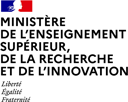Moderators: Nadia A. Valverdi, Chapman University, California, USA ; Eleinis Avila-Lovera, Smithsonian Tropical Research Institute, Panama ; Giverson Mupambi, University of Massachusetts, Massachusetts, USA.
The workshop objectives are:
- Learn about controlled water stress and how it can be used on commercial crops
- Learn techniques/equipment commonly used for studying physiological water stress thresholds.
- Share ideas on best methods/approaches to study particularly difficult/sensitive crops.
Manipulating plant water stress is a technique that has been applied for many decades to change particular aspects of fruit production, including increasing tannins in grape vines, reducing vegetative growth in tree fruit, and controlling fruit size. Despite a large body of literature on regulated water stress strategies in horticultural crops, it is still common to find the over-application of water in the industry. This overwatering often causes root hypoxia, fruit-nutrient related disorders, oversized fruits, and increases the susceptibility of the plant and fruits to pathogens.
During this workshop will be discussed the reasons why this longstanding and well-studied technique is not widely used by the commercial horticulture industry, as well some of the methods/technologies that could/would make the industry feel more confident in understanding the regulated water stress thresholds of their crops, the associated soil-moisture content indicators, and how improving the efficiency of water use is becoming a necessity in the face of increased drought challenges expected in the near future. The discussion will be conducted by the moderators with the participation of Bernardita Sallato, representative of the Pacific Northwest tree fruit industry.








